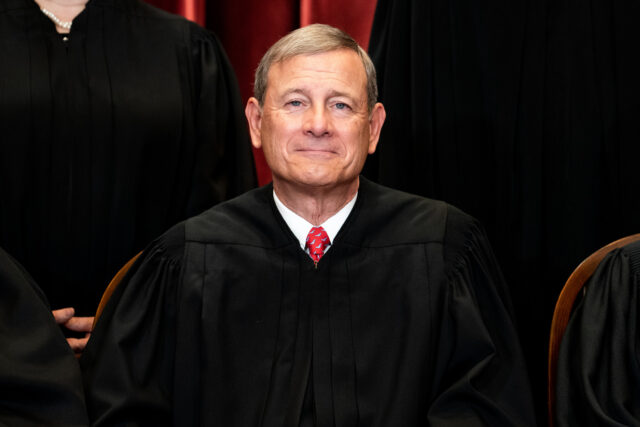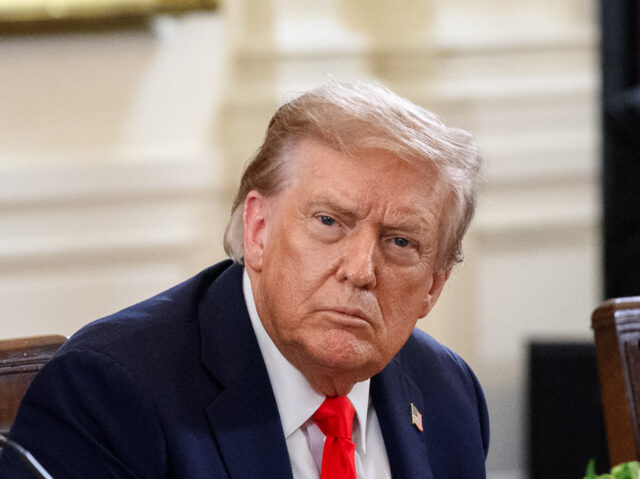In a major win for President Donald Trump, the Supreme Court ruled on Monday that he can remove a Democratic member of the Federal Trade Commission (FTC), marking a significant victory for the administration and raising important questions about presidential power over independent regulatory agencies.
Chief Justice John Roberts issued a brief order blocking a lower-court ruling that had reinstated Commissioner Rebecca Kelly Slaughter while her legal challenge played out. While the order didn’t settle the broader constitutional question of whether presidents can dismiss FTC commissioners without cause, it indicated that the justices may eventually side with the Trump administration on the issue.
The dispute began in March when Trump dismissed Slaughter along with fellow Democratic commissioner Alvaro Bedoya. Bedoya dropped his legal challenge, leaving Slaughter to fight her removal in federal court. Despite the FTC website continuing to list her as serving, her legal status has been uncertain as the case proceeded through the federal judiciary. Both a district judge and the U.S. Court of Appeals for the D.C. Circuit ruled in her favor earlier this year.
At the heart of the case is a direct challenge to Humphrey’s Executor v. United States, the 1935 Supreme Court precedent that upheld congressional restrictions on presidential removal power. Under the FTC Act of 1914, commissioners can only be removed for "inefficiency, neglect of duty, or malfeasance in office" — not for political or policy disagreements.
However, recent Supreme Court cases have indicated growing skepticism about such protections for independent agencies. The Court has struck down similar removal restrictions for the Consumer Financial Protection Bureau and the Public Company Accounting Oversight Board, finding that such limits infringe on the president's authority over the executive branch.
In the 2023 Trump v. Wilcox case, the Supreme Court stayed lower court orders that would have prevented Trump from removing officials from the National Labor Relations Board and the Merit Systems Protection Board. The ruling suggested that these agencies exercise considerable executive power, making their "for-cause" removal limitations vulnerable to constitutional challenges.
Administration lawyers argue that the FTC’s removal restrictions unlawfully limit the president’s powers to oversee the executive branch. This case is part of a broader effort by the Trump administration to replace members of other independent commissions, with the Court signaling an increasing willingness to allow such actions.
The FTC operates under a bipartisan structure, with five commissioners serving staggered seven-year terms and a requirement that no more than three members come from the same political party. Trump initially appointed Bedoya in 2018, and President Joe Biden reappointed him in 2024. Both had been serving as the agency’s Democratic representatives until their removal.
The Court’s eventual decision on the underlying constitutional question could have far-reaching consequences, potentially reshaping the balance of power between the White House and federal agencies historically insulated from political pressure. It could also have broader implications for Trump’s removal of Federal Reserve Governor Lisa Cook, an issue that has raised similar questions about presidential authority over independent financial regulators. However, the Trump v. Wilcox ruling suggested the Federal Reserve might be treated differently due to its unique structure as a “quasi-private entity.”
As the case progresses, the Court’s final ruling may fundamentally alter the dynamics between the executive branch and regulatory agencies, expanding presidential power and reducing the independence of agencies like the FTC.


